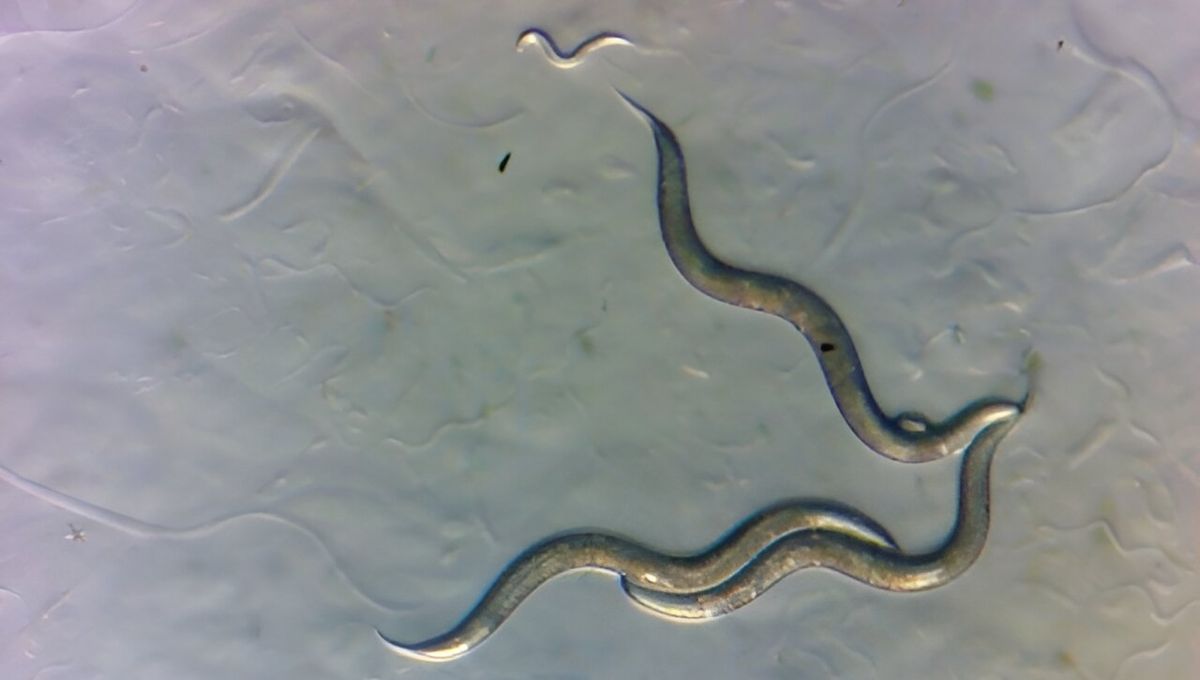
The nematodes inhabiting the Chernobyl Exclusion Zone (CEZ) give precisely zero fucks about the background radiation levels surrounding the ill-fated power plant, new research has revealed. After analyzing the microscopic worms’ genomes, scientists discovered that the creatures’ DNA remains completely unaltered despite having been exposed to levels of ionizing radiation that we humans think of as harmful.
“The 1986 disaster at the Chornobyl Nuclear Power Plant transformed the surrounding region into the most radioactive landscape known on the planet,” write the study authors. Almost 40 years on, a 30-kilometer (18.6-mile) region around the site remains abandoned due to high levels of lingering radiation, although it’s currently unclear how this has affected the local wildlife.
“Did the sudden environmental shift select for species, or even individuals within a species, that are naturally more resistant to ionizing radiation?” ponders study author Sophia Tintori in a statement. To investigate, she and her colleagues collected 15 nematodes from different areas of the CEZ and compared their genomes to those of five other worms of the same species from different parts of the world.
Because ionizing radiation can cause double-strand breaks in DNA, the researchers suspected that the Chernobyl worms would display “heritable chromosomal rearrangements”, passed down through multiple generations of exposed nematodes. To their surprise, however, the CEZ specimens showed no chromosomal differences when compared to worms from Germany, the US, Australia, Mauritius, and the Philippines.
Further analyses revealed that the nematodes from Chernobyl displayed no more recently acquired mutations than their international counterparts, all of which suggests that their DNA has not been damaged by the radiation at Chernobyl.
“This doesn’t mean that Chornobyl is safe – it more likely means that nematodes are really resilient animals and can withstand extreme conditions,” says Tintori. “We also don’t know how long each of the worms we collected was in the Zone, so we can’t be sure exactly what level of exposure each worm and its ancestors received over the past four decades.”
Wondering if the nematodes from the CEZ might simply have a special mechanism for repairing damaged DNA, the researchers then exposed the animals to three different mutation-causing chemicals and observed how these mutations were passed on to future generations. Overall, they found that different nematode strains displayed different levels of tolerance to these mutagens, but that their responses could not be predicted by their exposure to radiation.
In other words, the worms from Chernobyl were not systematically better at protecting their DNA than nematodes from elsewhere, suggesting that radiation levels within the CEZ have not selected for strains with higher degrees of genetic resilience. Instead, it seems that nematodes are simply not bothered by ionizing radiation.
While these findings are obviously great news if you’re a microscopic worm, they also hold significance for humans. For instance, they could help scientists understand why some people are more susceptible to DNA damage than others, thus leading to new insights into the development of cancer and other diseases.
“Now that we know which strains of [nematode] are more sensitive or more tolerant to DNA damage, we can use these strains to study why different individuals are more likely than others to suffer the effects of carcinogens,” says Tintori.
The study is published in the Proceedings of the National Academy of Sciences.
Source Link: These Tiny Worms From Chernobyl Are Completely Unaffected By Radiation